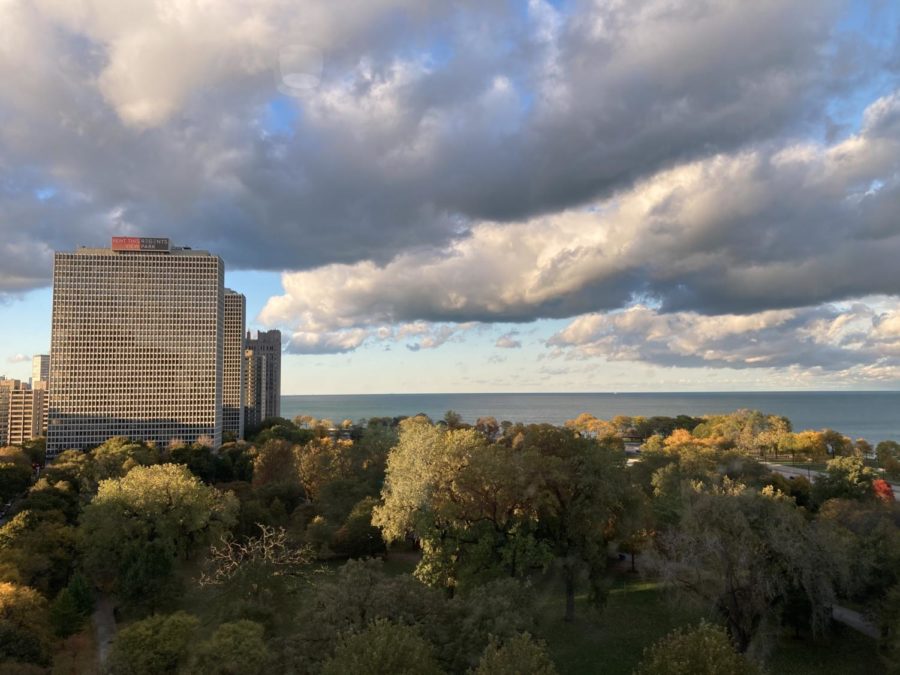The Hyde Park–Kenwood Community Conference hosted a community dialogue on February 25 to share information about the Dementia Friendly Hyde Park (DFHP) initiative. Last year, the DFHP secured Hyde Park as Illinois’s first dementia-friendly. The meeting involved discussing the goals of the community and what potential initiatives they might work on.
UChicago neuroscientist Wade Self kicked off the event by talking about his grandfather’s battle with dementia and providing a brief overview of some facts about the disease. He noted that the symptoms of almost 40 percent of dementia cases could be alleviated by lifestyle intervention, citing research by an international group of experts. Community health plays a role in certain triggers for dementia, such as depression, social isolation, and air pollution—factors the DFHP initiative seeks to address.
“These data suggest that initiatives could also be taken to potentially prevent dementia or reduce the risk of dementia for people that don't yet have a diagnosis.… Through certain efforts that we could all take together in these different areas of our community, we can create a more equitable space for people living with dementia and their family and caregivers,” he said.
Former professor and Alzheimer’s Association board member Tom Doyle spoke next, sharing his journey of having Lewy body dementia, a type of progressive dementia that accounts for 5 to 10 percent of dementia cases. He found it difficult to come to terms with his condition, especially having derived his sense of purpose and meaning from a life in academia. Doyle eventually found great support in the Alzheimer’s Association and his personal network of medical professionals.
Kelly Stepto-Royston, a Hyde Park resident, spoke about what it was like caring for her mother with dementia. She provided three “commandments” to guide other caregivers: one, “remember, it’s the dementia,” to remind caregivers that the disease is separate from the family member they’ve known their whole lives; two, “forgive,” to urge the caregiver to forgive themselves whenever they get frustrated; and three, “prioritize myself,” to make sure the caregiver doesn’t lose their own sense of self as they are busy taking care of someone else’s.
Next, Tessa McEwen, a social worker at UChicago’s Memory Center who also serves as a medical sector coleader for DFHP, spoke about why neighborhood support matters for people with dementia. She said that even for all the memory loss, what still remains are emotions and feelings of love, hope, and connections.
“Our hope is to really help the person feel safe and warm and included [because] it’s a very isolating experience,” she said.
McEwen also mentioned that some patients she has talked to also feel embarrassed when they have a memory lapse.
“We need a dementia-friendly community because we want to help educate one another to pay attention to this, and be sensitive and mindful when we notice this amongst our neighbors. Therefore, we want to train our first responders and our staff and our everyone around us,” she said.
McEwen also said that the UChicago Memory Center is available for diagnostic workups, medical exams, MRIs, and other resources needed to help people with dementia.
Finally, McEwen touched on additional dementia-friendly programs, such as expanding the art program for Memory Center patients and offering transportation alternatives that are specialized for people with dementia.
According to McEwen, the overall goal of having a dementia-friendly neighborhood is to educate members of the community, from those working in businesses to grocery stores, to support people with dementia. For example, she said, training could be given to staff on how to best physically approach and help people based on how dementia affects memory and language. Future goals include examining transportation, safety, free resources, and more.
“We’re really so excited to have this opportunity to really feel like we are an inclusive neighborhood, no matter who we are, no matter what we look like, and no matter what our cognitive abilities are,” she said.









